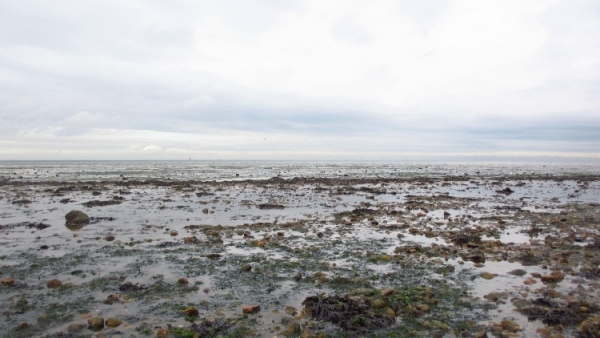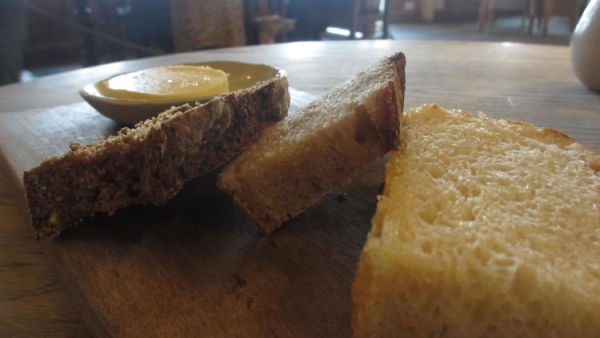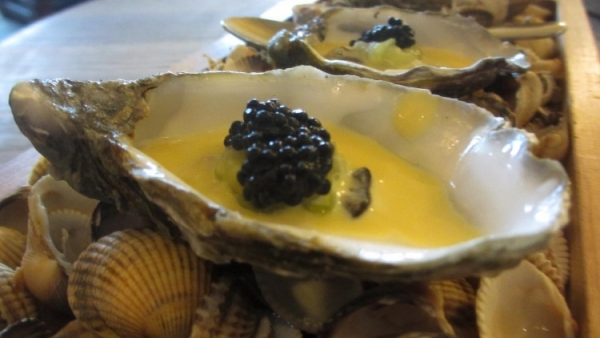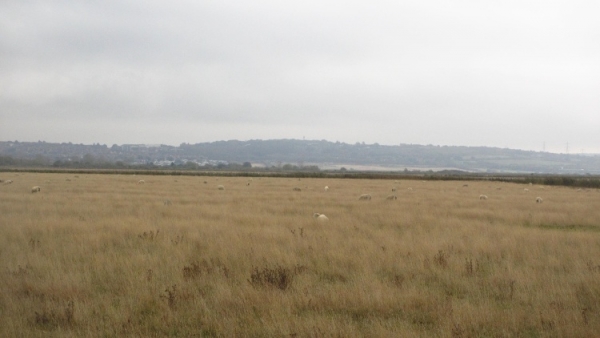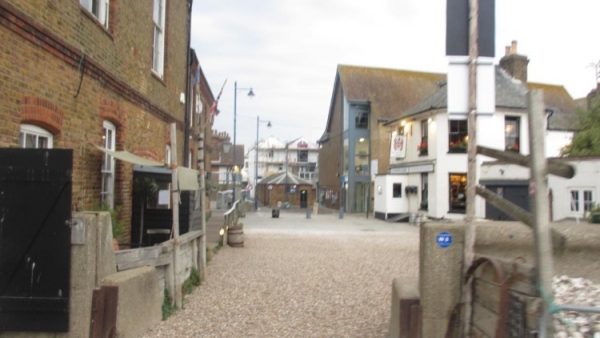Stephen Harris: 'I’d forgotten what it was like to have a spare table'

I’m visiting on a Thursday in mid-October, and the walk is more than an hour long. The sea is fitful and misty; orange stones crunch underfoot. A fisherman is circled by a shaggy Labrador as he repetitively tosses out a line.
And as I near the pub, I pass dewy hills. I watch as hundreds of blackbirds flock to a wire. Out of nowhere, the Sportsman emerges from fog.
The pub is lauded as one of Britain’s top foodie destinations. Chef-patron Stephen Harris looks back on a golden era: it speared a Michelin star in 2008, topped Estrella Damm’s Top 50 Gastropub List for four years, and, in both 2017 and 2018, was crowned the UK’s Best Restaurant.
For years, the self-described ‘grotty boozer by the sea’ was booked up months in advance. Now, the chef-patron is re-adjusting to the sight of empty tables.
He’s candid about this: “You have your time in the sun in terms of awards and that’s fine.” But thank god the pub’s been in business for more than two decades, he admits. “I’d forgotten what it was like to have even one spare table. When it suddenly goes down, it’s a big change.”
Having said this, summer has been busy. Business still feels “good and vibrant”, with bustling lunches and slightly quieter evenings. It’s enough for the pub to be chipping along, says the punk-musician-turned-chef.
But the return of the winter months may bring about patchy trade, and Harris expects January, February and March to be quieter than normal.
He says: “We’re at a bit of a crossroads because of the state of the industry, but we’re alright. I’m glad this happened 23 years in and not three years, because I see how it could kill you off.”
With no formal training, Harris, an ex-history teacher, abandoned a lucrative but boring career in finance to see if he could build a career out of his cooking obsession.
In 1999, he took over the Sportsman with his brother Phil, and in the two decades since has transformed it from a dilapidated shell to a gastronomic haven.
At £80 per head, Harris thinks the Sportsman’s extended menu is very good value. It includes five courses, all influenced by seasonality and British ‘terroir' (think: marshland, salt flats, farmland) and is accompanied by surprise snacks and sweet treats.
It currently includes a roast lamb dish, served pink, with confit vegetables cooked gently in lamb fat. The pork dish is now paired with a sauce made from apples and grey mustard roasting juices, rather than the greengages or local apricots of earlier months.
Gamey meat like partridge and venison will soon come to the menu, and a baked aubergine option has been swapped for roast celeriac.
This dish is actually one of Harris’ favourites. The celeriac, grown in the pub’s garden outback, is brought together with stewed apple and a cep & lemon verbena sauce. “It’s delicious,” he says.
And what about dessert? At the moment, the former history teacher is loving a classic, French lemon tart. He says: “I’ve been working with pastry people to get it right, and it’s just amazing how detailed it is – everything has to be perfect.”
Guests expect something special when visiting the Sportsman, with some looking forward to the visit for more than six months since their booking. This comes in the form of seamless flavour combinations and an “understated level of complexity” according to the Michelin Guide.
This is evident in the slip sole grilled in seaweed butter, a popular dish, with the seaweed collected from the local beach to be made into butter. Harris invented this method: “Everyone’s doing it now, but we were the first.”
Whitstable is famous for oysters, and they’re certainly a fan favourite. Served in sets of three, they arrive on a bed of seashells topped with pickled cucumber and Avruga caviar.
On my visit, guests at a large window table enjoy the dish. A greyhound is on high alert in one corner. “He does like caviar I have to say,” quips his owner, before slipping him some of the good stuff. Lucky boy.
So what The Good Food Guide's Elizabeth Carter calls the pub’s “sophisticated form of no-frills British cooking” clearly has broad appeal. But Harris is actually thinking about adding a few more frills. There are plans to host themed evenings to draw in guests. For instance, an Elizabeth David evening would see local chefs cooking the 20th century chef’s dishes.
Maybe he’ll experiment with Thai or Mexican flavours in the kitchen. As a pub esteemed for its locality, this would be a bold move. “It’s a bit of fun really,” explains Harris, “something a little different.”
Bidfood’s 2024 Food & Drink Trends report marked out ‘British fusion’ as something piquing consumers’ palettes, with the chance for chefs to mix local cuisine with European, Asian and African flavours fuelling creativity.
Harris admires the new wave of ‘fusion’ cooking, which often sustainably uses British ingredients to create dishes from around the world. “It’s being done by very young, independent, enthusiastic chefs,” he says. “I really love their energy.”
But it’s “great flavours and consistency” that make the Sportsman a cut above the rest. When asked what makes a pub Michelin-status, he says there’s no magic formula. But walking back to Whitstable, oysters speckle the beach, seaweed plasters the rocks and fields are strewn lazily with sheep. The Sportsman distils the very best parts of the landscape onto a plate.



